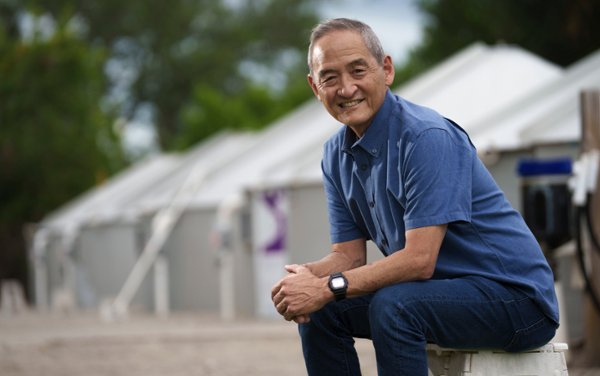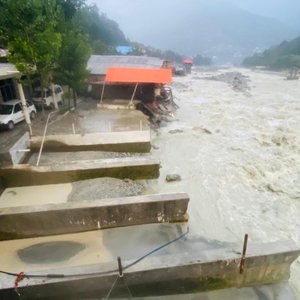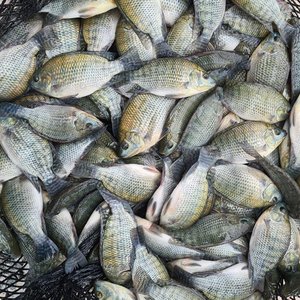Dr. Wade Watanabe has positioned the University of North Carolina Wilmington (UNCW) as a leader in aquaculture and mariculture for the past 25 years. Watanabe will officially retire from his position as research professor and director of UNCW's Finfish Aquaculture Program and Facility on September 1.
Watanabe established the Aquaculture Program at the Center for Marine Science to advance finfish development while protecting the environment, overseeing the development of sustainable and cost-effective methods to raise saltwater fish in captivity. The endeavor encompasses all aspects of growing fish, from reproduction in captivity, diet and nutrition to waste management, seafood economics and even marketing. He also worked with local fish farms, feed industries, other researchers and students to establish sustainable practices in the industry.
He began his career in aquaculture research at the Oceanic Institute in Hawaii, a nonprofit research and development organization dedicated to marine aquaculture, biotechnology and coastal resource management. In 1997, Watanabe brought his expertise to UNCW and helped establish an aquaculture facility at the former desalination plant in Wrightsville Beach.
“UNCW wanted me to set up the marine finfish aquaculture program to take advantage of this site more fully and the seawater supply infrastructure made available from the desalination plant,” said Watanabe. “Over time, and with the university's support, we acquired a series of grants that enabled my staff and me to assemble the facility slowly but surely into what it is now. I call it comprehensive marine aquaculture, research, education and outreach facility.”
Watanabe's work has established UNCW and the Center for Marine Science as a leader in commercial finfish development. Kenneth Halanych, executive director of the Center for Marine Science, said Dr. Watanabe’s efforts will continue to be integral to the industry's growth. “His work with students and the community, as well as his commitment to sustainability practices, are at the heart of our position as the state’s coastal university,” said Halanych. “Throughout Wade's 25-year career with the university, he has been instrumental in developing the aquaculture facility with innovative techniques for raising saltwater fish in captivity. The hatchery can control water temperature and light to spawn fish all year, an important aspect for commercial fish farming.”
UNCW’s aquaculture facility has enabled students to gain experiential training in this field. Student and faculty researchers have access to controlled-environment broodstock systems, hatchery and sustainable feed production systems, a pilot commercial scale hatchery and nursery and numerous labs.
Watanabe's research has taken him all over the world – Asia, the Pacific and the Caribbean – to study a variety of species, including milkfish, grey mullet, tilapia, summer and southern flounder, mutton snapper, Nassau grouper, and black sea bass. He has secured $6.8 million in grants, program income and gifts to date, earning him membership in the UNCW Sponsored Programs and Research Compliance's James F. Merritt Five Million Dollar Club, which recognizes researchers who have been awarded $5 million or more in external funding.
“I hope that the research program and these facilities will provide a firm foundation for other researchers and students to continue the work on marine finfish aquaculture,” he said. “It has been a tremendous honor and privilege to work here. It has enabled me to combine my interests in marine finfish and artificial propagation with education and outreach, in terms of training students, producing scientific publications and creating economic opportunities for our citizens.”













